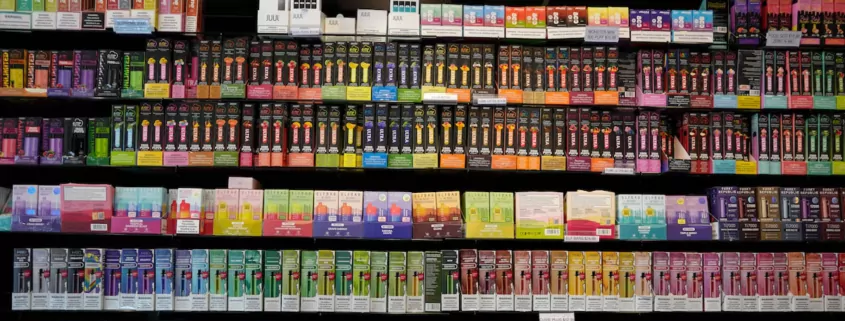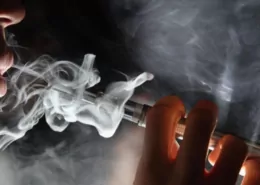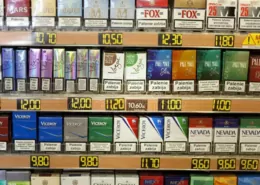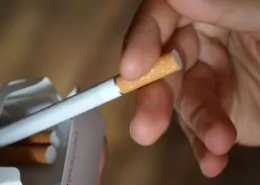Oregon Rules Vape Packaging Restrictions Unconstitutional
The Oregon Court of Appeals has delivered a significant ruling that strikes down a state law restricting the packaging and marketing of e-cigarettes, finding that it violates the free speech protections of the Oregon Constitution. The decision, issued in October, addresses a 2015 law that prohibited the sale of vaping products in packaging deemed “attractive to minors,” a rule that had been interpreted to ban not only cartoons and celebrity endorsements but also common descriptive words like “juicy,” “cool,” or even simple flavor names like “apple.”
This ruling represents a notable moment in the ongoing legal battles over how states can regulate vaping products, particularly concerning marketing and youth appeal. It highlights the power of state constitutions in regulatory challenges and underscores the complexities of balancing public health goals with constitutional rights.
The Law and the Legal Challenge
The case centered on Oregon’s House Bill 2546, passed in 2015, which enacted Or. Rev. Stat. § 431A.175(2)(f). This law made it illegal to sell an “inhalant delivery system” if its packaging was “attractive to minors.” The Oregon Health Authority (OHA) subsequently issued regulations (Or. Admin. R. 333-015-0357) providing a non-exclusive list of what would be considered “likely to appeal to minors.” This list included:
- Cartoons, mascots, or celebrities.
- Images of food or beverages like candy, desserts, or soda.
- Descriptive flavor words such as “tart,” “sweet,” “cool,” “fire,” “ice,” or “juicy.”
- The shape of animals, toys, or sports equipment.
In 2021, Paul Bates, owner of Division Vapor in Portland, and No Moke Daddy LLC, represented by the conservative think tank the Goldwater Institute, filed a lawsuit against the OHA. They argued that the law and its associated regulations were an unconstitutional infringement on their right to free speech under Article I, section 8 of the Oregon Constitution, which prohibits laws “restricting the right to speak, write, or print freely on any subject whatever.” They contended that the law prohibited truthful, nonmisleading communication about legal products based on the content of that communication. Bates, who had resorted to covering offending product labels with white stickers, argued that his customers should have access to accurate information to make informed choices.
After losing the initial case in Multnomah County Circuit Court, the plaintiffs appealed.
The Court of Appeals Decision: A Focus on Free Speech
The Oregon Court of Appeals reversed the lower court’s decision, finding that the state statute did indeed violate the Oregon Constitution on its face. The court’s opinion, authored by Judge Scott Shorr, explained that the law was directed at the expressive content of the packaging itself. The court reasoned that while the state’s goal was to prevent harm to minors (i.e., prevent them from using e-cigarettes), there was no established, direct causal link presented that proved the “attractive” packaging *necessarily* led to that harm. Therefore, the court concluded that the statute was aimed at restricting the speech itself, rather than a “forbidden effect or harm of the regulated speech.” Applying a strict standard of review, the court found the statute to be an unconstitutional restraint on expression.
“I’m grateful the appellate court struck down the government’s attempt to stop me from communicating with my own customers,” Bates said in a press release following the ruling.
The Court of Appeals remanded the case back to the circuit court for a judgment consistent with its opinion. It declined to rule on the constitutionality of the OHA’s specific regulations or the plaintiffs’ vagueness argument, as the finding that the underlying statute was unconstitutional on its face was sufficient.
Broader Context and Implications
This ruling is significant as it showcases how state constitutions can provide a powerful basis for challenging state-level tobacco and nicotine restrictions, sometimes offering different or more robust protections than the U.S. Constitution’s First Amendment. The legal arguments and outcomes can vary greatly from state to state depending on the specific language of their constitutions.
The case also highlights the ongoing tension between public health efforts to curb youth vaping and the commercial speech rights of businesses selling legal products to adults. Public health advocates, including the American Cancer Society and the National Library of Medicine, often point to statistics showing that a vast majority of minors who use tobacco start with flavored products. Oregon’s public health agencies have cited an increase in chronic tobacco use following a 25-year trend of decreasing cigarette sales as a reason for concern.
Despite this ruling on packaging, Oregon maintains a strict regulatory environment for vaping products, including:
- A minimum purchase age of 21.
- A requirement for product inventory to be kept under lock and key by store owners.
- Mandatory child-resistant packaging.
- A ban on selling vape products in marijuana dispensaries.
- A 65% excise tax on the wholesale price of e-cigarettes.
The legal battles over vaping are far from over in Oregon and across the country. In a separate but related issue, Washington County, Oregon, successfully defended its local ban on the sale of flavored tobacco products in court earlier this year, after the state legislature passed Senate Bill 587 in 2021, which granted local jurisdictions the power to regulate tobacco sales. This indicates that while statewide marketing restrictions may face constitutional hurdles, local sales prohibitions might have a different legal standing.
The Oregon Court of Appeals decision on packaging adds a new and important chapter to the national debate, demonstrating that while the goal of protecting youth is widely shared, the methods used to achieve it must withstand constitutional scrutiny.






